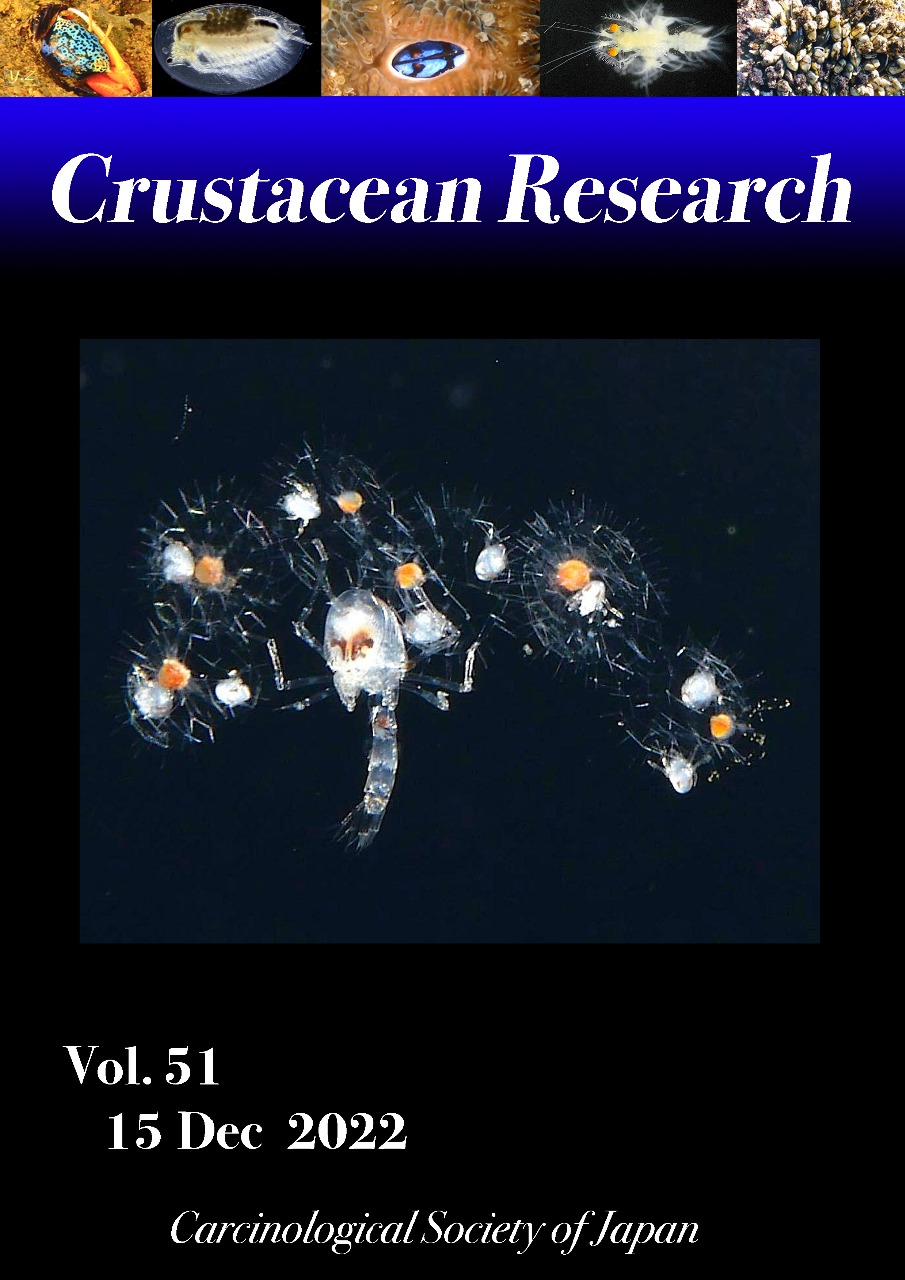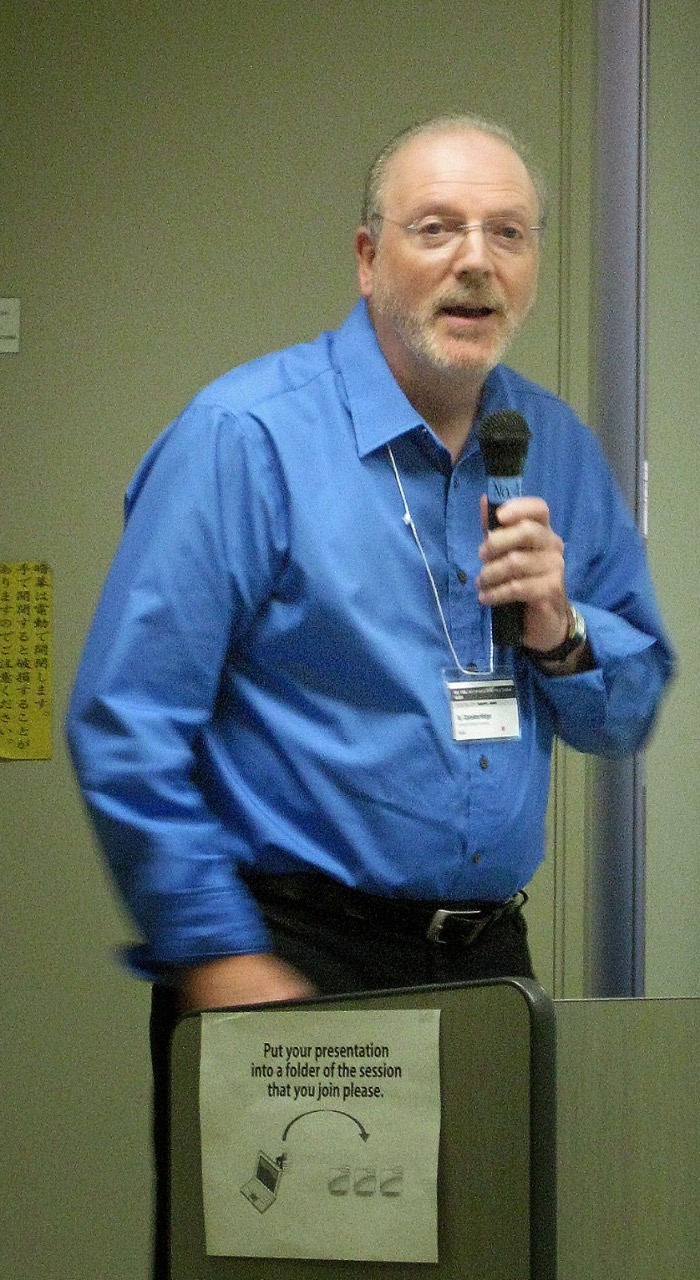
Message from President
August 2023
In the wake of the COVID-19 pandemic of 2020-2021, a face-to-face annual meeting was finally held at Okayama University in October 2022, marking a momentous return from an extended interlude. I extend my profound appreciation to Professor Kazuyoshi Nakata, Professor Koki R. Katsuhara, and Dr. Quang-Tuong Luong from Okayama University, along with Dr. Seiichi Tsumura of Okayama University of Science RiSEN, and the assiduous organizing committee for their unwavering dedication and endeavors.
Furthermore, my gratitude extends to Drs. Yuzo Ota and Naoya Ohtsuchi for their adept organization of the pre-meeting workshop for young researchers in the field of crustacean studies. Naturally, my gratitude is also extended to all participants, presenters, and coordinators whose active involvement significantly enriched the 2022 meeting.
Within the framework of this annual meeting, noteworthy accolades were conferred upon Mr. Takuto Horigome (Kitasato University) and Tsubasa Inoue (Nagasaki University), who merited the CSJ Best Oral and Poster Presentation Prizes, respectively. Moreover, it is with a profound sense of gratification that we acknowledge Dr. Yuzo Ota (San'in Kaigan Geopark Museum of the Earth and Sea) for his exceptional research contribution, which led to his receipt of the Best Paper Prize for his publication in our official journal "Crustacean Research." To all laureates, I extend hearty congratulations on their distinguished achievements.
.jpeg)
Volume 51 of "Crustacean Research" was published in December 2022, featuring a cover photograph of surprising discovery of an association between an amphipod and unicellular protists from an article entitled "First record of the maternal care behavior of a "rhizarian rider", Phronimopsis spinifera Claus, 1879 (Amphipoda, Hyperiidea), in association with Aulosphaera sp. (Rhizaria, Cercozoa, Phaeodaria, Aulosphaeridae)" by Nobuhiro Saito, Aiko Kayama, Yasuhide Nakamura. Our Japanese journal, "CANCER," continues to thrive under the guidance of our esteemed editor, Dr. Yuzo Ohta.


We have been apprised of favorable reports from Professors Susumu Ohtsuka and Kaori Wakabayashi of Hiroshima University, pertaining to the forthcoming International Conference on Copepoda. This significant conference is slated for commencement within the environs of Hiroshima, Japan, spanning the temporal expanse of 2nd to 7th June in 2024. Notably, the official imprimatur for registration shall be bestowed upon aspirants on the 13th day of November 2023. So, please check regularly the official web-site (https://icoc15.hiroshima-u.ac.jp/home.html) and become followers of the official Facebook and the official Twitter.

We have also been gratified by auspicious tidings from The Crustacean Society, an entity with which we enjoy a fraternal affiliation facilitated by the TCS-CSJ Liaison Officer. In 2009, CSJ extended a gracious invitation to Prof. Xiang Jian Hai, distinguished as the Emeritus President of the Chinese Crustacean Society, to participate in the TCS & CSJ Joint International Conference convened at the Tokyo University of Marine Science and Technology, Shinagawa. Furthermore, in 2017, an additional invitation was extended to Prof. Xiang Jian Hai to contribute to the International Symposium entitled "Frontiers in Crustacean Biology: Asian Perspectives," held at the Atmosphere and Ocean Research Institute, The University of Tokyo, within the framework of the 55th annual meeting of CSJ. Sustained by these interconnections, Prof. Xiang Jian Hai graciously conveyed a felicitation message imbued with sincerity and warmth on the occasion of the 60th Anniversary of CSJ (see; https://csj-2022-symposia.webnode.jp/xiang/). It is noteworthy that he was duly acknowledged for his exceptional contributions to the advancement of carcinology as a scientific discipline, meriting the accolade of The Crustacean Society Excellence Research Award. Permit us to extend our hearty congratulations on this esteemed accomplishment!
In reference to the aforementioned symposium held in 2017, we also extended an invitation to Professor Ka Hou Chu from The Chinese University of Hong Kong. In 2019, he assumed the role of chairperson at the TCS Mid-year Meeting in Hong Kong, where he graciously facilitated our Symposium titled "Frontiers in Crustacean Biology: Asian Perspectives: Part II." This symposium, expertly organized and presented by our dynamic and dedicated member, Dr. Tadashi Kawai, and myself, was hosted under Prof. Chu's benevolent guidance. In recognition of his crustacean study contributions, Prof. Chu was honored with the TCSERA award this year. The solemnity of this accomplishment was augmented by the Award Ceremony and Commemorative Lecture, both of which transpired during the 10th International Crustacean Congress at the National Museum of New Zealand, Te Papa Tongarewa.
In 2014, CSJ hold an international conference with International Association of Astacology at Sapporo, Hokkaido, and we invited Professor Neil Cumberlidge of Northern Michigan University as a distinguished guest speaker. He has been honored with TCSERA this year. Prof. Cumberlidge's field of research lies in the taxonomy, systematics and phylogeny of freshwater crabs inhabiting the African continent. His work has shed light on the remarkably high diversity of African freshwater crab species. Notably, this distinguished researcher had also delivered a lecture during the "Frontiers in Crustacean Biology: Asian Perspectives: Part II" symposium, which took place at The Chinese University of Hong Kong during the TCS Mid-year Meeting in Hong Kong in 2019. Our heartfelt gratitude for his participation.


It is with profound sorrow that we announce the passing of our distinguished and venerable emeritus members, namely Professor Shigemitsu Shokita (Emeritus Professor, University of the Ryukyus) and Professor Colin McLay (University of Canterbury), alongside our past council member, Professor Takenobu Yasuhara (Emeritus Professor, Nihon University), who served as an integral figure since the inception of our society and contributed significantly over the years. These esteemed members have regrettably left us within the span of this year. As the designated representative of CSJ, I extend my heartfelt condolences during this mournful time. Internationalization is a key policy of ours. Given the recent strides and heightened internationalization in the field of crustacean biology research across the Asian expanse, the present juncture is exquisitely opportune for the establishment of an Asian-Pacific consortium dedicated to advancing crustacean biology. Spearheading this initiative, the Carcinological Society of Japan is poised to organize the formation of this network. To concretize this visionary endeavor, a series of international symposia are in the offing, wherein esteemed researchers engrossed in the investigation of crustacean biology within the Asian purview will be extended invitations to expound upon the pinnacles of their research.

With this aim at the fore, a sequence of symposia, entitled "Frontiers in Crustacean Biology: Asian Perspectives," is meticulously being organized. The inaugural segment of this symposia series was convened during the 55th annual conclave of the Carcinological Society of Japan in 2017. Subsequently, the second installment of the symposium was held in May 2019 at The Chinese University of Hong Kong, coinciding with The Crustacean Society's mid-year meeting. In this year, the third chapter of this symposium was held in May 2023, aligning with the 10th International Crustacean Congress hosted in New Zealand.
Finally, I respectfully appeal for the collaborative engagement of each and every one of you by inviting new members to join, attending and giving presentations at our annual meeting. Additionally, I earnestly encourage the submission of the manuscripts to our official journals "Crustacean Research" and "CANCER."
Akira Asakura,
President, Carcinological Society of Japan
Director and Professor, Field Science Education and Research Center, Kyoto University